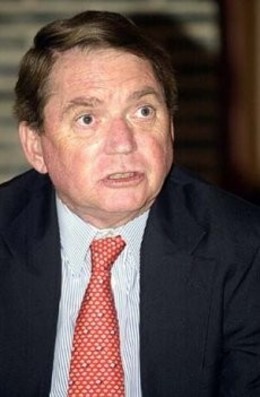Posted on : Sep.12,2006 15:32 KST
Modified on : Sep.13,2006 14:35 KST
 |
|
Former U.S. Ambassador to Seoul Thomas Hubbard.
|
Hubbard urges engagement in six-party framework
The ongoing debate on South Korea's taking over wartime control of its military from the U.S. has resulted from Korea's growth as well as developments in the military cooperation between the two nations, former U.S envoy to Seoul Thomas Hubbard said in a conference held in Washington on September 11. His remarks were quoted by the Korean version of the Voice of America.
Hubbard also said South Korea and the U.S. pursue the same goal: to remove nuclear weapons from the Korean peninsula. He said the two continue to closely cooperate on the issue within the multilateral framework of the six-party talks, which involve the two Koreas, Russia, Japan, China and the United States.
He, however, admitted Seoul and Washington are currently facing challenges in their relations, especially in dealing with threats imposed by North Korea. Nevertheless, he added the two countries are patiently seeking their shared goal through multilateral channels.
Hubbard said changes underway in bilateral ties between the U.S. and Korea stem from Washington's shift in focus toward the Middle East following the September 11 terrorist attacks and the emergence in South Korea of a younger generation, which brings with it a different approach to the issues at hand. Korea's rise to become one of the world's economic powers is another reason for the changes, he said, and the perception shift of many South Koreans that China and Russia are enemies no longer has also played a role.
The former envoy to Seoul said there is a difference in the two nations' stance toward the North. The U.S. sees Pyongyang as a threat to the global community, as it is feared to proliferate weapons of mass destruction to terrorists, but many in South Korea's younger generation do not agree with that view. At the same time, the South Korean government is seeking an engagement policy through dialogue rather than confrontation, he added.
The best way to deal with the North is dialogue, he said, through which he believed the communist country could return to the negotiation table designed to abolish its nuclear weapons programs.
The six-party talks have been in a stalemate since November last year, but Hubbard said that the recent pledge by U.S. president George W. Bush to seek dialogue to resolve the nuclear issue is a positive sign. He urged China and South Korea to be more active within the six-party framework.

